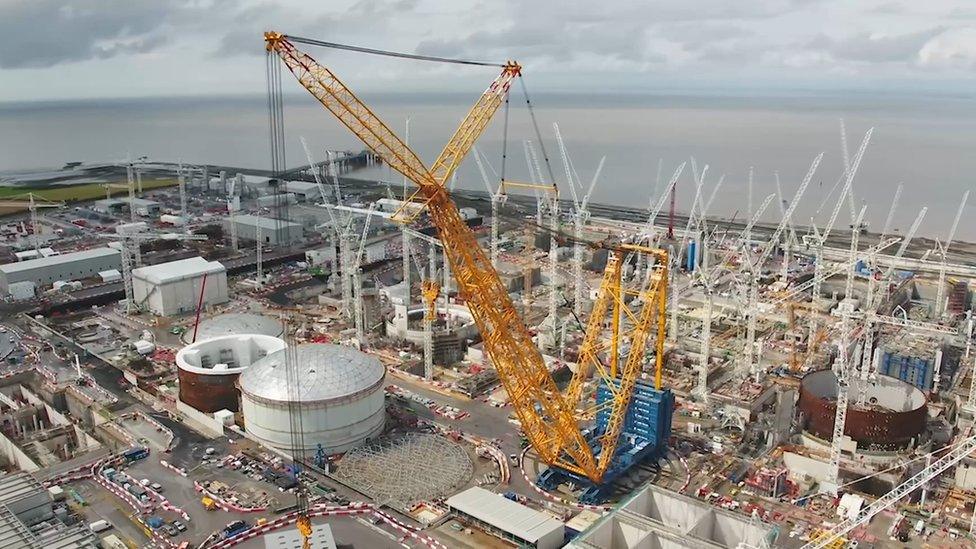Hinkley Point C: Giant vessels arrive for nuclear power station build
- Published
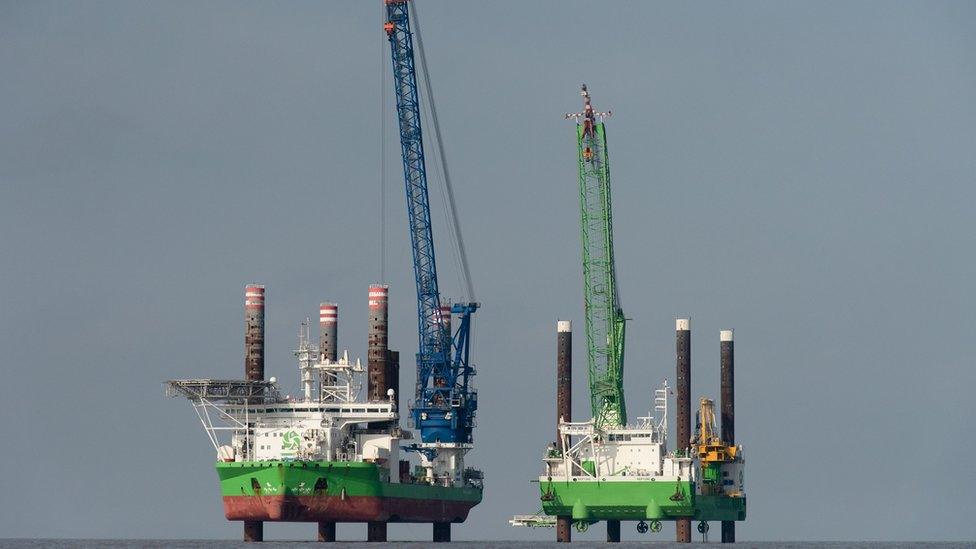
The two vessels are elevated above the sea to avoid wave and weather issues
Two huge vessels have arrived off the coast of Somerset as offshore work continues on the UK's newest nuclear power station, Hinkley Point C.
Named Neptune and Sea Challenger, they are 'jack-up' vessels, used to create six vertical shafts into the seabed.
The shafts will be used to install components for the power station's cooling water system.
The plant will eventually be cooled by water flowing through six miles (10km) of tunnels.
Hinkley Point C has been under construction by EDF Energy for five years.
Once the shafts, which will go 20m (70ft) into the seabed, are installed, miners will dig a horizontal connection between them and the cooling tunnels.
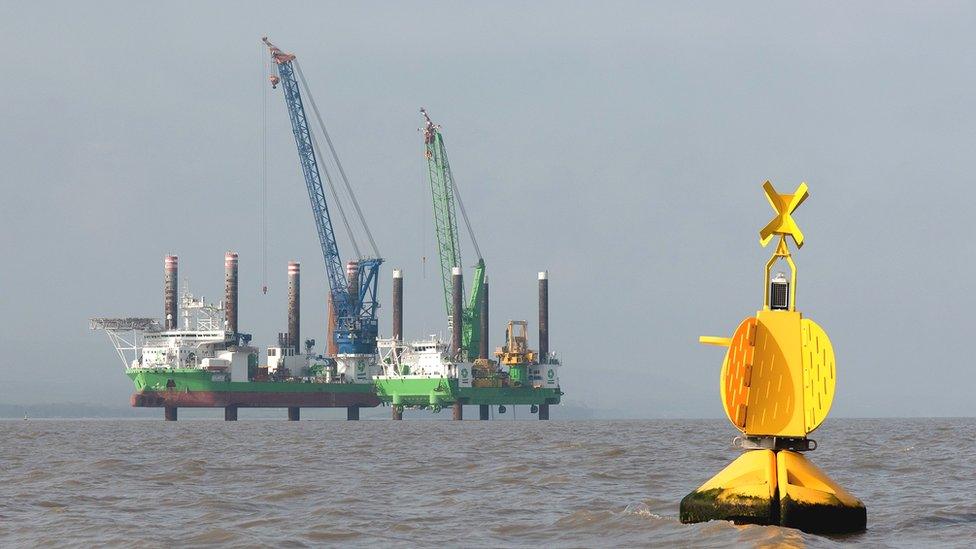
Work involving the two platforms is expected to carry on until the autumn
Often used to build offshore wind farms, Sea Challenger and Neptune have cranes on their platforms that have a combined lifting capacity of 1,500 tonnes.
Sea Challenger, which has a helicopter landing deck, is the larger of the two, at 132m (430ft) long, with Neptune 60m (200ft) long.
To avoid being impacted by waves and currents, each vessel has four extendable legs that elevate it above sea level.
Jonathan Smith, area delivery director, said: "This is one of the final stages of our offshore operations, which will see teams from EDF, Balfour Beatty and New Wave Solutions working together to deliver yet another incredible feat of engineering."
Roger Frost, director of construction company Balfour Beatty, said the arrival of the two vessels was a "significant step forward".
"We now look forward to utilising our unique capability and unrivalled expertise to continue with the linking up of the six miles of tunnels which are buried below the Bristol Channel - this is another important chapter in the offshore works required for Hinkley Point C's critical water-cooling system."
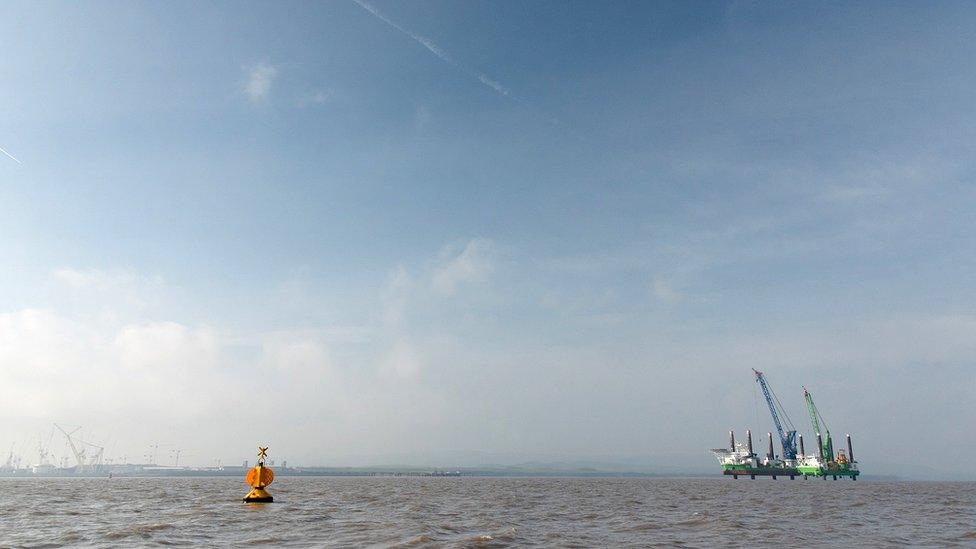
The two platforms will be used to create deep shafts into the seabed
Power generation at Hinkley Point C is expected to start in June 2027, two years later than originally planned.
The overall cost of the project has risen to an estimated £25-26bn. EDF has said the delay is largely down to the impact of the Covid-19 pandemic.

Follow BBC West on Facebook, external, Twitter, external and Instagram, external. Send your story ideas to: bristol@bbc.co.uk , externalk to install the shafts will continue into the Autumn.
- Published18 March 2023
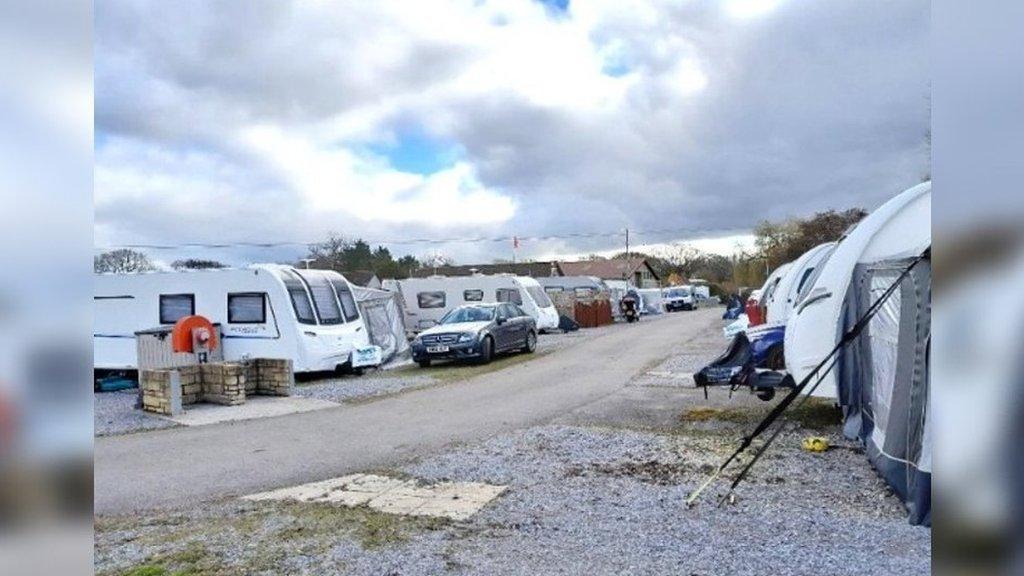
- Published27 February 2023
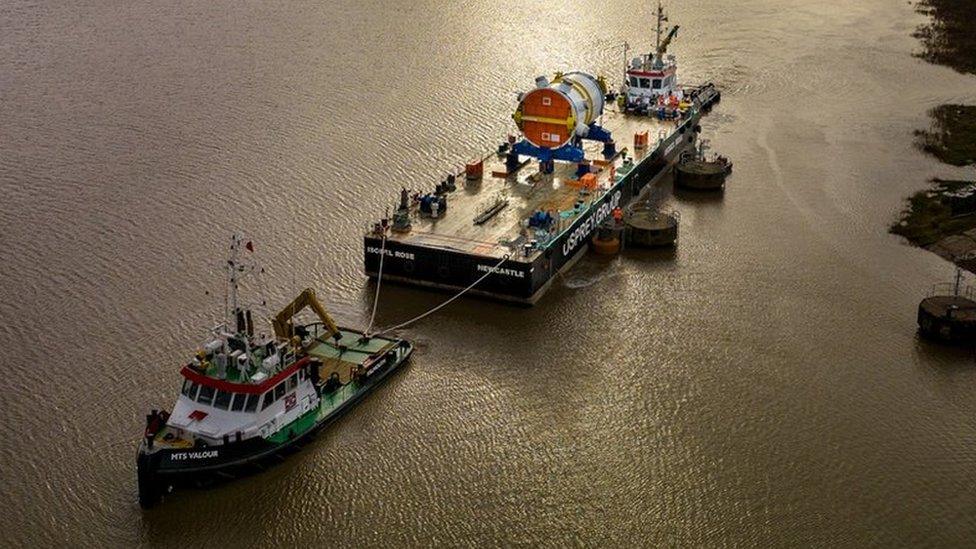
- Published23 February 2023
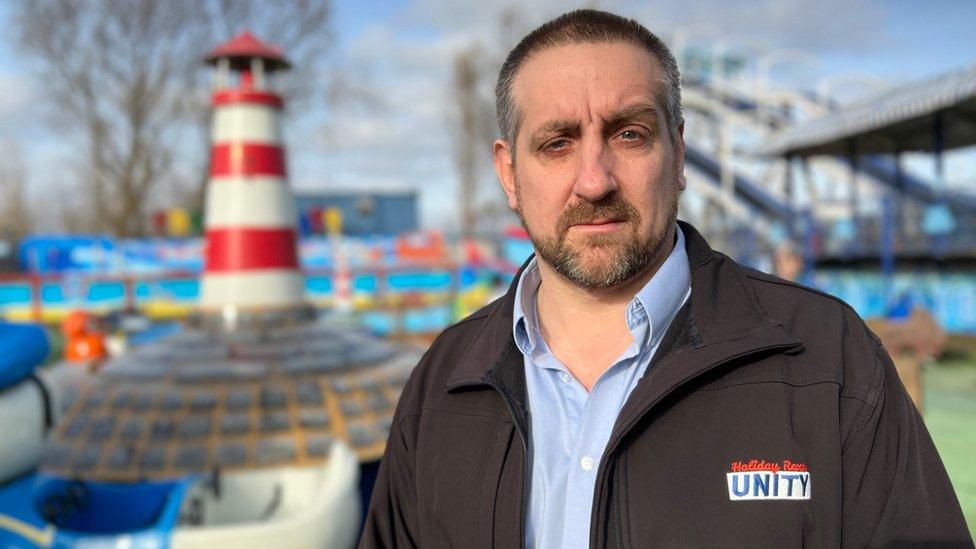
- Published20 May 2022
